
Henkel’s Low-Pressure Molding technology for encapsulating electrical and electronic components in its Technomelt polyamide adhesive molding compounds is increasingly being adopted for medical, electronic components, power and industrial automation, HVAC and lighting applications. The technology offers numerous economic, process control, design and environmental advantages over alternative systems such as potting with reactive resin systems and high-pressure injection molding.
Various Process Advantages
Technomelt Low-Pressure Molding (LPM) technology was invented some 30 years ago by Henkel (formerly called Macromelt Molding). The technology enables the quick encapsulation of delicate components by using specialised polyamides in combination with standard processing equipment and low-cost molds. Because the material is injected at a lower pressure compared to conventional injection molding processes, and non-abrasive materials are used, the risk of damage to the electronics during the encapsulation process is far lower.
The technology is particularly adept at encapsulating discrete areas in complicated assembly where wiring is attached to a printed circuit board (PCB), PCBAs and other rigid components. One reason for this is that Technomelt resins, which are all unfilled, are resistant to high stresses and at the same time very flexible.
この記事は ET Polymers の Aug-Sept 2021 版に掲載されています。
7 日間の Magzter GOLD 無料トライアルを開始して、何千もの厳選されたプレミアム ストーリー、9,000 以上の雑誌や新聞にアクセスしてください。
すでに購読者です ? サインイン
この記事は ET Polymers の Aug-Sept 2021 版に掲載されています。
7 日間の Magzter GOLD 無料トライアルを開始して、何千もの厳選されたプレミアム ストーリー、9,000 以上の雑誌や新聞にアクセスしてください。
すでに購読者です? サインイン

The Changing Face Of Mobility
A brief look at the salient points on how plastics is transforming automotive manufacturing
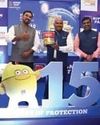
Nippon Launches Weatherbond PRO
Nippon Paint (India) Private Limited (Decorative Division) Asia’s leading paint manufacturer launched the advertising campaign for Weatherbond PRO – the high durable exterior emulsion offering up to 15 years of protection against extreme climate conditions like prolonged exposure to heat, and heavy spells of rain. Based on extensive research done by Nippon Paint’s R&D team, this product was developed for customers who need advance protection for their home exteriors in terms of extended fresh look, strong waterproofing and protection from Algal and Fungal attacks.
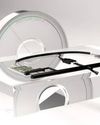
Low-Pressure Molding Adopted Across Industries
Henkel’s Technomelt Low-Pressure Molding technology meets demands for encapsulation of electronics and medical components
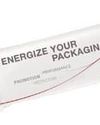
TotalEnergies and Jindal Films To introduce Certified Circular Polypropylene
TotalEnergies and Jindal Films have joined forces to produce more sustainable flexible food packaging and labels. Using advanced recycling technology from Plastic Energy, TotalEnergies will supply Jindal Films with Certified Circular Polypropylene produced from postconsumer plastic waste. This new value-chain collaboration will divert plastic waste currently destined for incineration and landfill because it is too complex to recycle through existing schemes.

Lenzing's VEOCEL™ Brand Launches Hydrophobic Lyocell Fibres With Dry Technology
In its quest to drive greater sustainability in the personal care and hygiene industry, the VEOCEL™ brand has launched a new offering: VEOCEL™ branded lyocell fibres with dry technology which are naturally smooth and gentle on skin, ensuring comfort for sensitive skin. Absorbent hygiene products are an indispensable part of many consumers’ lives and are relied upon daily. As these are essential items, it is important that they should offer maximum comfort and relief to the user. This is demonstrated by the new VEOCEL™ branded lyocell fibres which have the capacity to provide a high level of comfort, softness and dryness, when applied in these types of products.
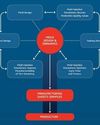
Simulating Injection Molding for Efficiency
Producing high-quality, plastic injection-moulded parts more quickly and cost-effectively has become a critical factor for manufacturing success in today’s global market. Instead of engaging in slow, expensive prototype iterations and test cycles to satisfy manufacturing requirements, designers, mold makers, and manufacturing professionals can leverage SOLIDWORKS® Plastics mold-filling simulation software to optimise parts for manufacturability, refine tooling to improve quality and shorten cycle times to reduce manufacturing costs
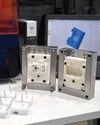
Leveraging 3D Printing for optimised Injection Molds
A guideline from Formlabs on the factors to consider before using stereolithography (SLA) 3D printed molds in the injection molding process to lower costs, reduce lead times, and bring better products to market
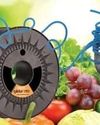
iglidur I151 for FDA-compliant, Detectable, Wear Resistant Parts In Food Technology
igus has developed a blue, food-compatible tribo-filament for cost effective 3D printing of special parts. iglidur I151 is blue, prints easily, and has an optimal coefficient of friction and wear. The new tribo-filament is a refinement of the easy-to-machine igus iglidur I150 all-rounder filament. Because it is blue, it can be used to manufacture special parts that are optically detectable in the food industry. Food compatibility according to the FDA and to EU Regulation 10/2011 also qualifies the high-performance polymer for use in the food and cosmetics industries.

Exceptional Warpage Control
SABIC’s new LNP™ THERMOCOMP™ compounds deliver exceptional warpage control
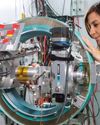
Digital Transformation in Plastics
Automation in the plastics industry is becoming more complex, the pace of innovation is accelerating, and competitive pressure is increasing. Open and safe automation makes it possible to combine traditional mechanical engineering with the latest Industry 4.0 technologies – Lets take a look at how Industry 4.0 is transforming the plastics sector